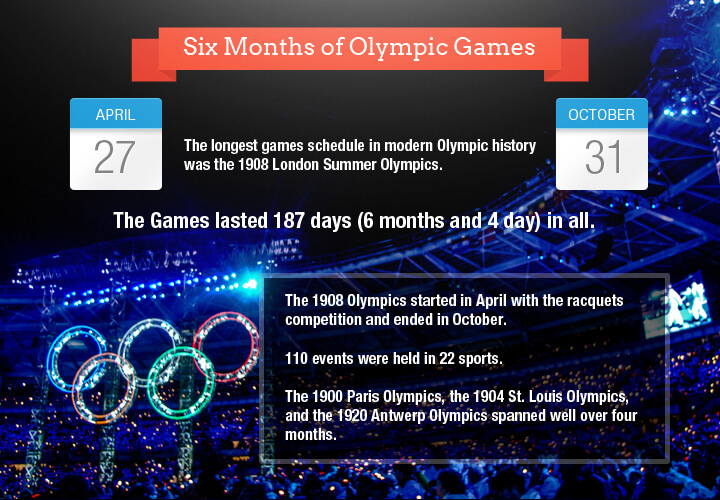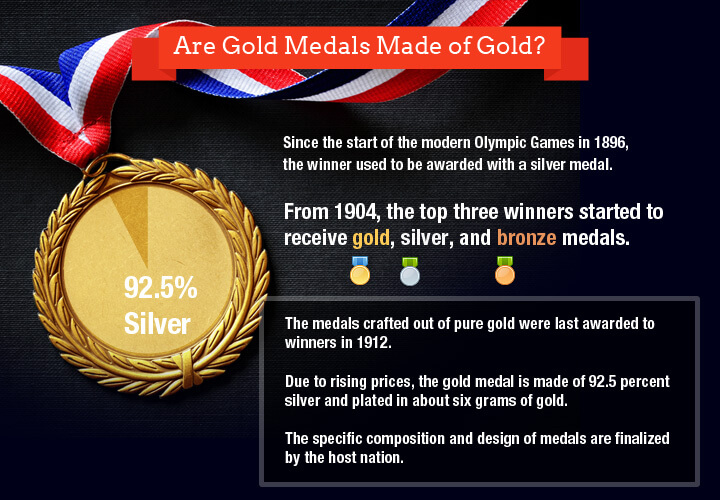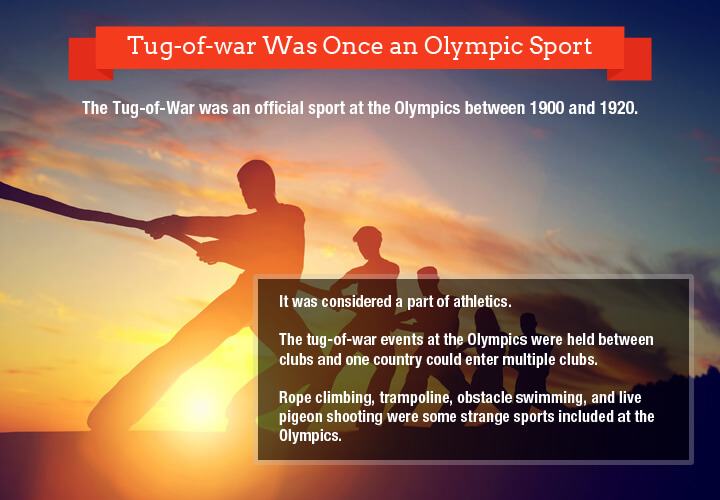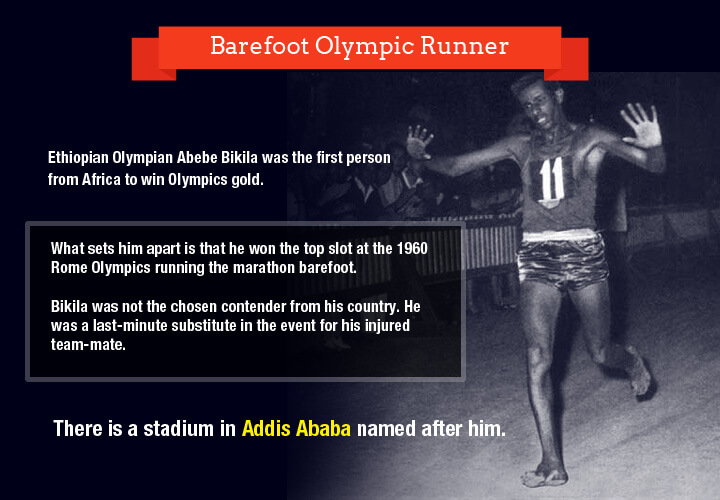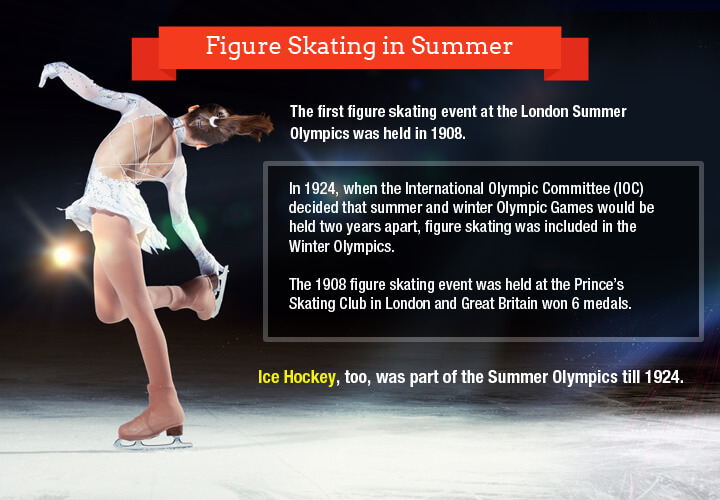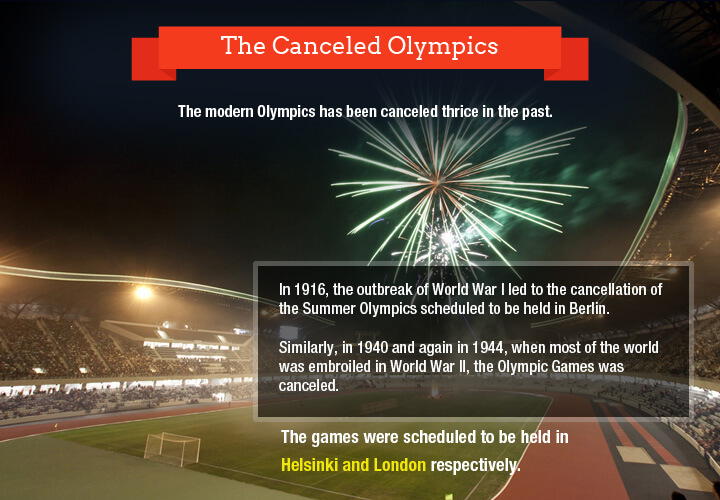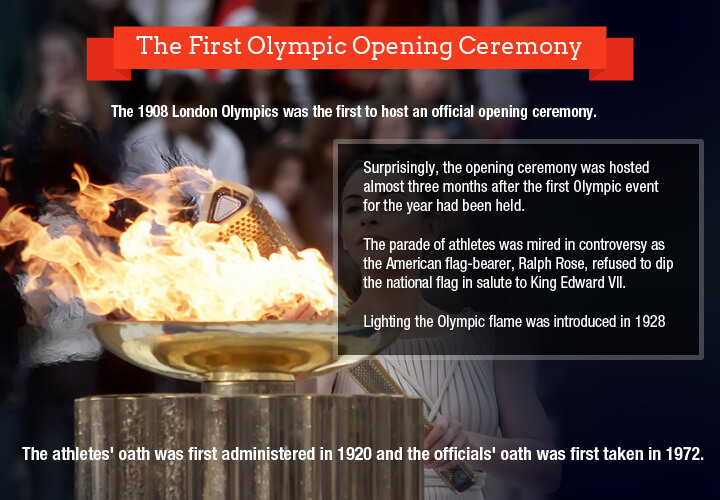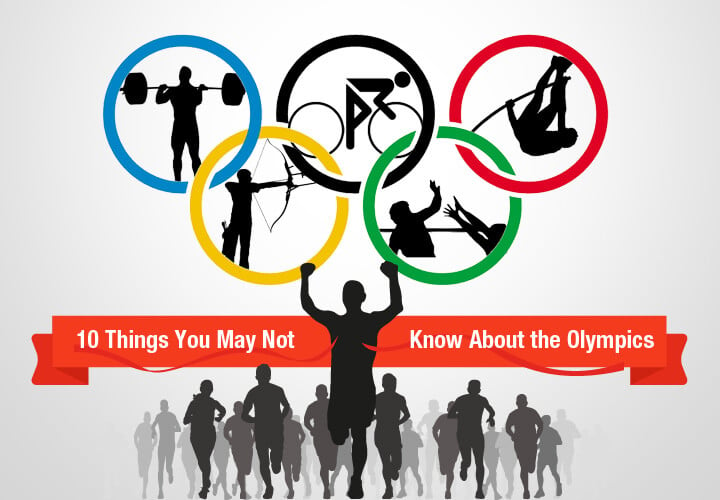With the excitement over 2016 Rio Olympic Games building up, here’s our list of 10 things you may not know about the Olympics.
Six Months of Olympic Games
Does the Rio Olympics schedule look long? The longest games scheduled in modern Olympic history was the Summer Olympics held in London in 1908, officially called the Games of the IV Olympiad. The games lasted 187 days (6 months and 4 day) in all – just about half a year. The games started in April with the racquets competition. The formal opening was held later in July and the games ended in October. 110 events were held in 22 sports. Other Olympic Games that spanned well over 4 months include the 1900 Paris Olympics, the 1904 St. Louis Olympics, and the 1920 Antwerp Olympics.
Are the Gold Medals Made of Gold?
Since the start of the modern Olympic Games in 1896, the winner of each event was awarded a silver medal. It was in 1904, that the top three Olympic champions started to receive gold, silver, and bronze medals. But the cost of pure gold medals seemed to mount and soon became a huge burden. The medals crafted out of pure gold were last awarded to winners in 1912. Ever since, the gold medal is made of 92.5 percent silver and is plated in about 6 grams of gold. The specific composition and the design of the medals are finalized by the host nation.
Walkover Event
The 1908 London Olympics remains memorable in many ways. It is also known for the only walkover in Olympics history. In the finals of the 400 meters running event, the judges were called in to settle a dispute between American runner John Carpenter and British runner Wyndham Halswelle. Halswelle claimed that Carpenter had interfered with his running and since the US and Great Britain had different rules of interference, the dispute could not be settled. The race was ordered to be re-run but the Americans refused to participate leaving Halswelle as the only runner on the track. Halswelle did run alone but the fact that he could simply have walked over to the finish line gave birth to the term “walkover”, which means uncontested victory.
Tug-of-War Once an Olympic Sport
You thought tug-of-war was kids’ sport? Or something you’d enjoy at the carnival? Think again. According to the records of the International Olympic Committee, tug-of-war was an official sport at the Olympics between 1900 and 1920. At the time, tug-of-war was considered part of athletics. The tug-of-war events at the Olympics were held between groups referred to as clubs and one country could enter multiple clubs thus earning the country multiple medals. Rope climbing, trampoline, obstacle swimming, and live pigeon shooting were some strange sports included at the Olympics at various times.
Barefoot Olympics Runner
Have you heard of the Ethiopian Olympian Abebe Bikila who now has the honor of having a stadium in Addis Ababa named after him? If you have, it may be because this lanky African was the first person from the continent to win Olympics gold. But what truly sets him apart is that Bikila won the top slot at the 1960 Rome Olympics running the marathon barefoot. What more, Bikila was not the chosen contender from his country. He was a last-minute substitute in the event for his injured team-mate. “Who’s this Ethiopian?” asked a commentator as Bikila headed to the finish line, ahead of his competitors.
Figure Skating in Summer
Figure skating is a favorite event at the Olympic Games. The first figure skating event was held at the London Olympics in 1908. It is only in 1924, when the International Olympic Committee (IOC) decided that summer and winter Olympic Games would be held two years apart, that figure skating came to be included in the Winter Olympics. The 1908 figure skating event was held at the Prince’s Skating Club in London and Great Britain won 6 medals, Sweden 3, Germany 2 and Russia 1. Ice hockey, too, was part of the Summer Olympics till 1924.
The Canceled Olympics
Cancellation of a scheduled Olympic Games is unthinkable, right? The modern Olympics have been canceled thrice in the past. All three times, the biggest sporting event in the world was canceled due to war. In 1916, the outbreak of World War I led to the cancellation of the Summer Olympics scheduled to be held in Berlin. Similarly, in 1940 and again in 1944, when most of the world was embroiled in World War II, the Olympic Games was canceled. The games were scheduled to be held in Helsinki and London respectively.
The First Olympics’ Opening Ceremony
The British are known for their adherence to tradition. It must have been a desire to set some Olympic traditions or simply their love for glitz and glamor that made 1908 London Olympics the first to host an official opening ceremony. And this was almost three months after the first Olympics event for the year had already been held. The parade of athletes at the ceremony was mired in controversy, though, with the American flag-bearer, Ralph Rose, refusing to dip the national flag in salute to King Edward VII. Lighting the Olympic flame was introduced in 1928, the athletes’ oath was first administered in 1920, and the officials’ oath was first taken in 1972.
Barred For Beer
When we speak of doping these days we refer to performance enhancers, steroid based drugs, and perhaps even testosterone precursors. Back in 1967, the International Olympic Committee adopted a new set of regulations prohibiting the ingestion of banned substances prior to the events. Hans-Gunnar Liljenwal, a pentathalete from Sweden became the first person to be disqualified at the Olympics for having had a couple of beers. The Swedish team was disqualified and asked to return their bronze medals. France was awarded the bronze later, instead of Sweden.
Rio for South America
The Olympic Games are all about inclusiveness and bridging geographies. And yet, till the 2012 London Olympics, Africa, Antarctica, and South America have been the only three continents in the world that have not hosted the Olympics games. With the 2016 Rio Olympiad, South America is all set to get off the list. It is highly unlikely that the games will be held in Antarctica and so we await Africa’s turn to host the prestigious Olympics soon.
Also Read:

